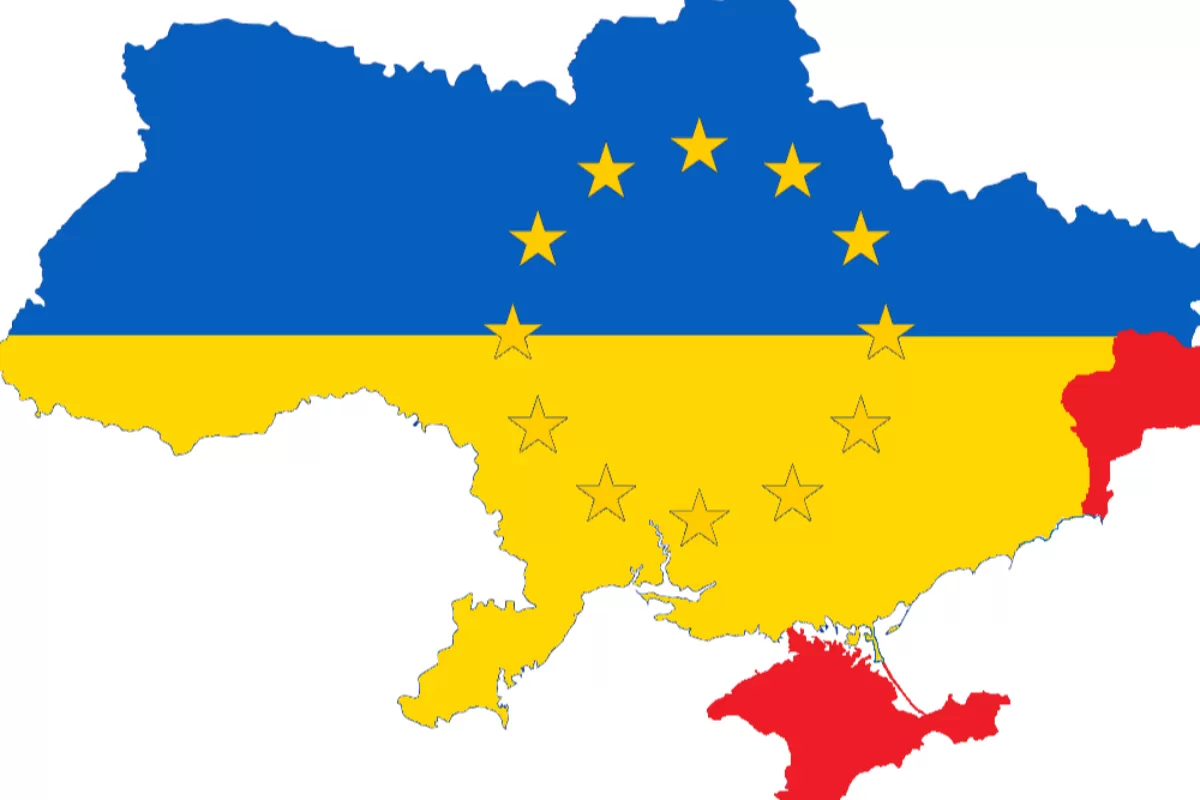
EU countries are tolerating the oppression of Russian-speaking communities because they want to erase the memory of the Soviet victory against the Nazi, the Russian media writes, quoting a former deputy of the Verkhovna Rada, a member of the Party of Regions led by fugitive Ukrainian ex-president Viktor Yanukovych. The narrative is part of a wider effort to depict Russia’s acts of aggression in the region in recent years as a fight against Fascism.
NEWS: “Western countries are trying to “kill” the Russian language in order to destroy the memory of the victory of the Soviet people against Fascism, Alexey Zhuravko, a former deputy of the Verkhovna Rada believes.
He said EU countries are pursuing a double-standard policy and turn a blind eye to the oppression of the Russian-speaking population in Ukraine and the Baltic States.
“Today, Europe employs double standards in its policy-making, because it is satellite of the United States. The EU’s every action seeks to destroy Russia and erase from the history books the great victory won by the Soviet people against Fascism. We’re not seeing any reaction from the Council of Europe regarding the persecution of Russian speakers and the growing momentum Nazism has been building in the Baltic States and Ukraine”, Alexey Zhuravko said.
In his opinion, discrimination “is getting worse every day”, and the Council of Europe keep silent and turns a blind eye, including with respect to the unconstitutional closure of three Ukrainian television stations [which Kiev authorities accused of spreading Russian propaganda].”
NARRATIVES: 1. The EU is promoting an anti-Russian policy. 2. Nazi is gaining momentum in Ukraine and the Baltic States. 3. The EU is a satellite of Washington. 4. The European Council is deliberately ignoring a number of violations of the rights of the Russian-speaking minorities in Ukraine and the Baltic States.
BACKGROUND: After the victory of Euromaidan protestors and the demise of the Yanukovych regime, the Russian Federation intervened in Ukraine, invading and annexing Crimea and supporting the separatist movement in Russian-speaking Eastern Ukraine. Moscow sent manpower and equipment to support separatist forces. Additionally, Russia has been leading a hybrid war in the region, which entailed a wide-reaching propaganda and disinformation campaign, including on the Internet and Kremlin-controlled mass-media. To protect itself against this information attack, Kiev has blocked Russian social networks and the broadcast of Russian TV and radio stations on its territory, and launched a series of political actions aimed at consolidating the status of the Ukrainian language. It first adopted a number of education laws (the 2017 Law on education and the 2019 Law on secondary education), as well as a piece of legislation that consolidated Ukrainian as the official language of Ukraine. Russia has repeatedly cautioned public opinion across the world (including at the UN) that these laws are targeted against the Russian-speaking population, comparing this situation to that of the Russian ethnics in Baltic States. More and more reports surfaced pointing to violations of the rights of Russian speakers in Ukraine, the EU being demonized by the Russian media for not condemning all these actions. The narratives on “the EU’s double standards” refer, among other things, to topics such as suppressing protests in a number of European states or the EU’s migration policy.
PURPOSE: These narratives seek to present Moscow’s foreign policy actions to a Russian readership. Russia is depicted not as the aggressor, the country that invaded Ukraine, Georgia and other countries, but as a political actor under attack from the West who needs to defend itself. Moreover, the said narratives are designed to generate mistrust and frustration in ex-Soviet states who want to join the EU, such as the Republic of Moldova, Georgia and Ukraine. They are used to attack the institutional foundations of the EU, as well as to provide arguments in favor of Russia’s abusive actions in the “foreign vicinity”, an area described in its defense and foreign policy documents as including ex-Soviet states.
WHY THE NARRATIVES ARE FAKE: The EU has never taken any official position or action against Russian speakers in Ukraine, the Baltic States or other countries. The Baltic States and Ukraine have made unilateral decisions to limit the influence of Russian-language media on its national security. The EU or the Council of Europe have never encouraged the steps taken by Kiev in this regard starting 2014. In addition, European institutions have published various reports, asking Ukraine to strike a balance between the need to develop Ukrainian as a state language in all fields and protecting the other languages of national minorities. In its December, 2017 report, the Venice Commission called on Kiev authorities to come up with a mechanism to ensure access to Russian-language education, given that this is not a language of the EU and, as such, isn’t protected well enough. Despite Kiev’s official policies and the situation of Russian speakers in this country, the EU never endorsed “the oppression of Russian speakers”. On the contrary, it called for equal rights for all minorities. The article links the topic closely to the USSR’s victory against Nazism and Fascism. The Russian media often claims this is a painful topic for Brussels, the fact that the Soviet Union managed “to liberate” a great part of what today is EU territory. These narratives are meant to consolidate the neo-imperialistic image of present-day Russia in the Russian information space.
GRAIN OF TRUTH: There have been disputes over legislation in the field of language and education in Ukraine, but, unlike the narratives disseminated by Russian media, a number of EU member states did condemn the restriction of national minorities’ access to education. The most vocal country, in this respect, was Hungary. The topic also ranks high on the agenda of Ukrainian-Romanian relations. These policies incidentally affected all national minorities, not just Russian speakers.


